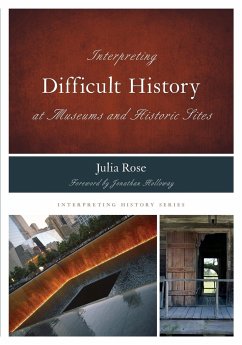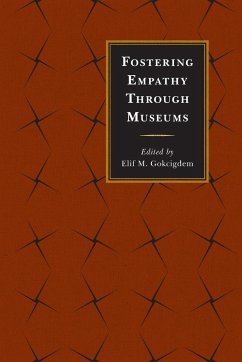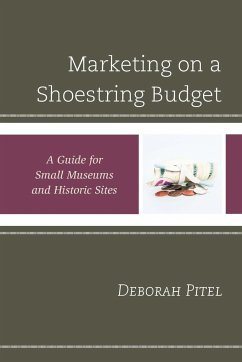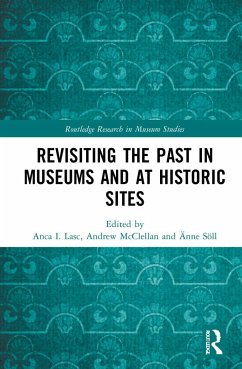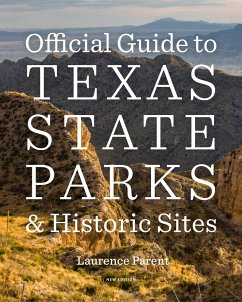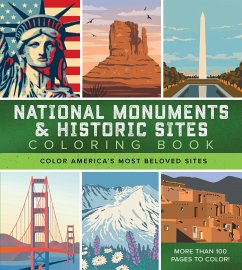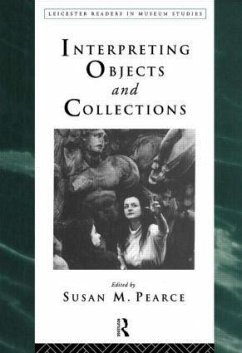Broschiertes Buch
Interpreting Science at Museums and Historic Sites
Versandkostenfrei!
Versandfertig in 1-2 Wochen
Weitere Ausgaben:

PAYBACK Punkte
27 °P sammeln!




Interpreting Science in Museums and Historic Sites stresses the untapped potential of historical artifacts to inform our understanding of scientific topics. It argues that science gains ground when contextualized in museums and historic sites.
Debra A. Reid,PhD, is curator of agriculture and the environment at The Henry Ford (THF). She has experience with AASLH's "Interpreting History" series, as author of Interpreting Agriculture at Museums and Historic Sites (2017) and co-author with David D. Vail of Interpreting the Environment at Museums and Historic Sites (2019). She is a fellow of the Agricultural History Society, and has received numerous additional awards for her teaching, research, and service. Her books include Reaping a Greater Harvest: African Americans, Rural Reform and the Texas Extension Service (2007), Beyond Forty Acres and a Mule: African American Landowning Families since Reconstruction (co-edited with Evan P. Bennett, 2012), and essays in anthologies including Companion to U.S. Agricultural History (forthcoming 2022), Science as Service: Establishing and Reformulating American Land-Grant Universities, 1865-1930 (2015), the Routledge History of Rural America (2016), and Arkansas Women: Their Lives and Times (2018). Karen-Beth G. Scholthof, PhD, is professor of plant pathology and microbiology at Texas A&M University. She earned her undergraduate B.S. in Botany (and a minor in philosophy) at Montana State University, an M.S. in plant pathology (virology) from the University of Nebraska-Lincoln, and a PhD in plant pathology (virology) at the University of Kentucky. Her course "Pathogens, the Environment and Society" reflects her keen interest in bringing plant pathology, public health, environmental sciences and the humanities to students in science majors. She has published more than 100 peer-reviewed manuscripts and book chapters on molecular plant virology and host-virus interactions. She is an elected fellow of the American Phytopathological Society, the American Society for Microbiology and the American Association for the Advancement of Science. David D. Vail, PhD, has training in environmental history, science and technology, earning a PhD at Kansas State University. He is associate professor in the Department of History at the University of Nebraska at Kearney. Vail has worked with universities and humanities councils to spread the word about the intersection of policy, science, and agricultural production. He serves as book reviews editor for The Public Historian (National Council on Public History), conference selection committee for the American Society for Environmental History, and the editorial committee of Agricultural History. His award-winning book, Chemical Lands: Pesticides, Aerial Spraying, and Health in North America's Grasslands since 1945 (2018), is part of the University of Alabama Press' NEXUS Series: New Histories of Science, Technology, the Environment, Agriculture, and Medicine.
Produktdetails
- Interpreting History
- Verlag: Rowman & Littlefield
- Seitenzahl: 266
- Erscheinungstermin: 11. September 2023
- Englisch
- Abmessung: 254mm x 178mm x 15mm
- Gewicht: 514g
- ISBN-13: 9781538172759
- ISBN-10: 1538172755
- Artikelnr.: 67787060
Herstellerkennzeichnung
Libri GmbH
Europaallee 1
36244 Bad Hersfeld
gpsr@libri.de
Für dieses Produkt wurde noch keine Bewertung abgegeben. Wir würden uns sehr freuen, wenn du die erste Bewertung schreibst!
Eine Bewertung schreiben
Eine Bewertung schreiben
Andere Kunden interessierten sich für






